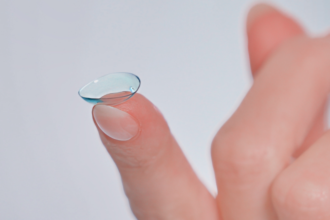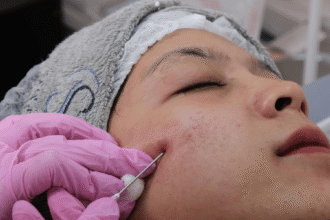Introduction: Quitting Isn’t Easy—And That’s Okay
If you’ve tried to quit drugs or alcohol on your own and failed, you’re not alone—and you’re not weak. Addiction can have a powerful grip on both your body and mind. Willpower alone isn’t always enough, especially when symptoms of alcohol detox hit hard. For many, the fear of those symptoms keeps them stuck in the cycle. The truth? Getting help isn’t giving up—it’s stepping up. Medical detox can provide the structured, supportive start your recovery needs. If you’re feeling stuck, this might be the missing piece you’ve been looking for. Let’s explore how it really works.
- Introduction: Quitting Isn’t Easy—And That’s Okay
- What Makes Medical Detox So Different?
- Common Signs You Might Need Medical Detox
- Here’s What Medical Detox Looks Like Day-to-Day
- Why DIY Detox Can Be Risky and Unpredictable
- How Medical Detox Supports Both Body and Mind
- The Role of Medication and Monitoring in Detox
- Is It Right for You? Let’s Break It Down
- What Happens After Detox? The Next Steps Matter
- Final Thoughts: You’re Not Weak for Needing Help
What Makes Medical Detox So Different?
Medical detox isn’t the same as quitting cold turkey at home. It’s a supervised process that helps your body clear harmful substances while keeping you safe and stable. Medical professionals monitor your condition, provide medication to ease symptoms, and step in quickly if any complications arise. This approach reduces the risk of severe withdrawal effects like seizures, dehydration, or heart problems. Unlike home detox, you’re never left alone. With trained staff and constant care, medical detox turns a frightening, overwhelming process into something manageable—and even hopeful.
Common Signs You Might Need Medical Detox
Not everyone who drinks or uses drugs will need medical detox, but many do and don’t realize it. Here are some common signs it might be right for you:
- You feel physically ill when you stop using
- You’ve tried quitting on your own and relapsed
- Your substance use affects your daily life or health
- You use opioids, alcohol, or benzodiazepines regularly
- You feel anxious, shaky, or depressed without the substance
If even a few of these sound familiar, it’s worth talking to a professional. Medical detox isn’t a last resort—it’s often the smartest first step.
Here’s What Medical Detox Looks Like Day-to-Day
Wondering what really happens during detox? It’s more structured than you might expect. After an initial health assessment, you’re assigned a personalized treatment plan. You’ll likely stay at a detox center where nurses and doctors check on you regularly. You’ll be given fluids, food, and possibly medications to manage symptoms like nausea, anxiety, or insomnia. Some facilities offer counseling or light therapy to ease stress. The first few days are the hardest, but the constant care makes all the difference. After about 5–10 days, your body is clean, and you’re ready for the next step in recovery.
Why DIY Detox Can Be Risky and Unpredictable
Trying to quit on your own might seem brave, but it can also be dangerous—especially with substances like alcohol, opioids, or benzodiazepines. These drugs can trigger serious withdrawal effects, including seizures, hallucinations, or heart irregularities. Without professional help, it’s hard to manage these symptoms safely. You may also face emotional crashes, leading to relapse or self-harm. Detoxing alone also lacks accountability and support, both crucial during early recovery. Medical detox removes those risks by placing your health in the hands of experts. It’s not just safer—it’s more likely to lead to lasting change. For those seeking high-end facilities with comprehensive care, a Beverly Hills rehab offers a discreet and luxurious environment for recovery.
How Medical Detox Supports Both Body and Mind
Detox isn’t just about the physical part of withdrawal—it’s about mental clarity and emotional healing, too. During detox, you may start to feel your emotions again after a long period of numbness. That can be overwhelming. Thankfully, most detox programs include access to therapists or counselors who can guide you through the early emotional rollercoaster. You may also begin learning coping skills or identifying triggers. Medical detox offers a safe environment where your mental and emotional well-being is taken seriously—not just your physical state.
The Role of Medication and Monitoring in Detox
One of the biggest advantages of medical detox is the use of medication to manage withdrawal symptoms. Depending on the substance and severity, doctors might prescribe:
| Symptom | Medication Example |
| Anxiety, agitation | Benzodiazepines |
| Nausea, vomiting | Ondansetron or metoclopramide |
| Insomnia | Trazodone or melatonin |
| Cravings | Buprenorphine or naltrexone |
These medications don’t “replace” the addiction—they simply reduce the discomfort and help you stabilize. Along with 24/7 monitoring, this allows for a safer, more tolerable detox experience.
Is It Right for You? Let’s Break It Down
You might still be wondering if medical detox is necessary for you. Here’s a quick checklist:
- Do you feel sick, shaky, or anxious without your substance?
- Have you relapsed multiple times after trying to quit?
- Are you worried about withdrawal symptoms being dangerous?
- Do you use high-risk substances like opioids or alcohol?
- Do you want medical guidance and emotional support during detox?
If you answered “yes” to even two of these, medical detox could be the right option. It doesn’t mean you’ve failed—it means you’re ready to heal the right way.
What Happens After Detox? The Next Steps Matter
Detox is just the first step in a longer journey. After your body clears the substance, you’ll need tools to stay clean. This often involves rehab, therapy, or outpatient programs. These help you understand why you used in the first place and how to avoid going back. Most detox centers help with this transition by creating a custom aftercare plan. The goal is not just sobriety—but recovery that lasts. Think of detox as clearing the fog. What comes next is about building the life you want in the light.
Final Thoughts: You’re Not Weak for Needing Help
Asking for help with addiction is one of the hardest and bravest things you can do. If you’re struggling to quit and nothing has worked, please don’t blame yourself. Medical detox exists because addiction is a health issue, not a failure of character. It offers hope, structure, and safety when you need it most. It helped thousands—and it can help you too. If you’re thinking about it, take the next step. A conversation with a detox center could be the turning point in your life. You deserve that chance.

















